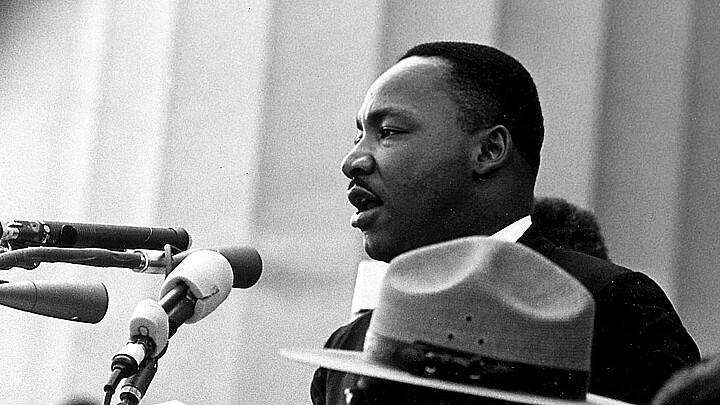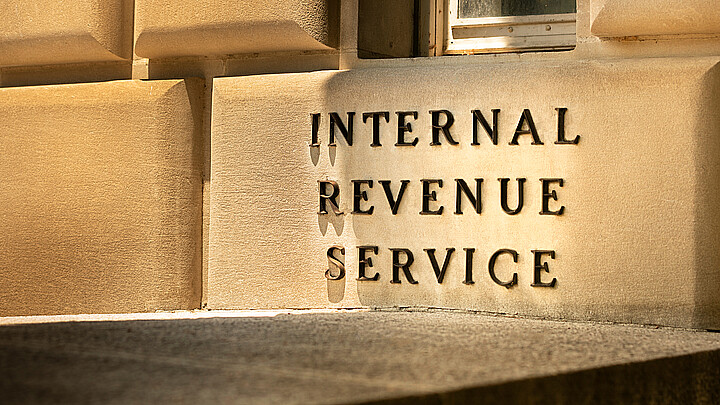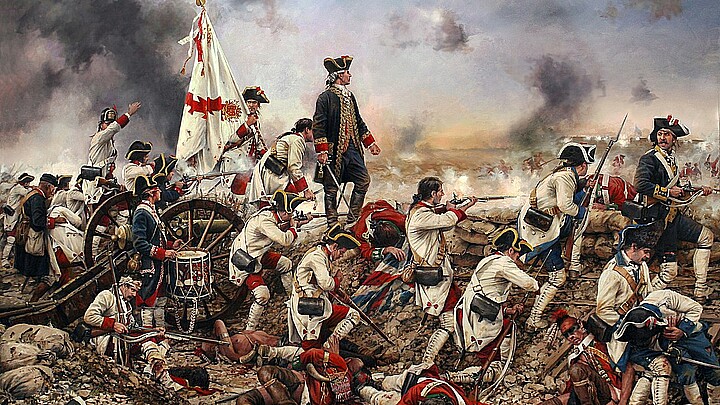Opinion & Reviews
OPINION: We celebrate Martin Luther King, Jr. Day to honor his dream of ‘colorblindness’
Martin Luther King, Jr. believed in America and the message of its forefathers—so do we
January 17, 2022 3:16pm
Updated: May 20, 2022 11:59am
Nearly forty years ago in 1983, President Ronald Reagan signed Martin Luther King, Jr. Day into law as a federal holiday. The holiday was enacted by America’s 40th president after failing Congressional passage in 1979, and 15 years after Dr. King was assassinated in Memphis, TN on April 4, 1968.
The holiday was first observed federally in 1986 and officially observed in all 50 states by 2000. It has also been celebrated internationally by some in Canada, Israel, Japan, and the Netherlands.
The U.S. has only two other individuals honored by national holidays — Christopher Columbus and George Washington. Although some opposed the bill to create a holiday to honor Dr. King, President Reagan signed it into law.
We contend that in the midst of the rise of Critical Race Theory and its push for a divisive, race-conscious version of society, Dr. King’s significance is revitalized. It is perhaps more important than ever that we honor Dr. King’s dream of colorblindness on this very important day.
Martin Luther King taught us to aspire to colorblindness to advance the goal of racial equality and harmony. His message was “to judge people by their character, not the color of their skin.” Generations of American schoolchildren were encouraged to aspire to a principle that prioritized the individual over any type of collective identity. Simply put, people are what they do—their decisions, ethics, morals and values—not what kind of background they come from.
The historical impact of Dr. King’s work was extraordinary. In just the space of a couple of decades, large segments of society evolved from condoning racism to condemning it. Through both Democratic and Republican presidential administrations and Congress, the United States achieved the colorblind society Dr. King talked about in his speech, “I Have a Dream,” given on the steps of the Lincoln Memorial before hundreds of thousands during the historical 1963 Civil Rights March on Washington.
That 17-minute speech, commemorating the 100-year anniversary of President Abraham Lincoln’s Emancipation Proclamation, instilled in the hearts and minds of schoolchildren for decades to come, the importance of recognizing people as individuals with equal access and opportunity under the law. The following year in 1964, Dr. King was accepted the Nobel Peace Prize on behalf of the civil rights movement in Oslo, Norway.
Dr. King wanted people to come together as one, and his dream was that one day, “the sons of former slaves and the sons of former slave owners will be able to sit down together at the table of brotherhood,” and that “little black boys and black girls will be able to join hands with little white boys and white girls as sisters and brothers.”
And yet, for a small but influential segment of the population in academia, the media, and far Left that rally around the so-called Critical Race Theory, the goal is to knock, by any means necessary, down the pillars of Dr. King’s colorblind America. They want to take us back to the days of compulsive “race consciousness” as the only way of rectifying past injustices.
Today we see how CTR has replaced the principles of MLK in the school system, a curriculum Florida Gov. Ron DeSantis has denounced as “teaching kids to hate our country or to hate each another" After all, it is impossible to have both a colorblind and a race-conscious society. The two are fundamentally at odds.
In addition to promoting race-consciousness, CRT portrays America as an almost irreparable nation that is doomed. It implies our nation was founded on racist principles and therefore, its forefathers and the Constitution are flawed. Dr. King disagreed. He believed in America and even quoted one of our nation’s most significant forefathers in that same speech.
Dr. King said, “And so even though we face the difficulties of today and tomorrow, I still have a dream. It is a dream deeply rooted in the American dream. I have a dream that one day this nation will rise up and live out the true meaning of its creed: "We hold these truths to be self-evident, that all men are created equal."
At that moment, Dr. King embraced America and quoted Thomas Jefferson’s words from the Declaration of Independence. He understood that the principles America was founded on were righteous. It took time for the entire country to embrace those principles in actuality and not just theory, but America made it happen, and Dr. King was a big part of that.
That is why we honor him as we also honor others like Thomas Jefferson, George Washington, John Adams, Abraham Lincoln and Susan B. Anthony. All of these figures, and many more were instrumental in helping America find its way to a colorblind, free society based on recognizing the individual—a place where each person has the right to live their life how they choose, free from fear or guilt based on any immutable trait or ancestry.
In 1989, when President George H.W. Bush extended the Martin Luther King, Jr., Federal Holiday Commission Extension Act to help foster observance of the day, he described the holiday as “a day of hope, renewal, and rededication to the ideals of Dr. King, those that he upheld a day dedicated to the memory, if you will, of a man who campaigned for peaceful change; of a man who stood for human dignity and certainly the fulfillment of individual excellence; of a man determined, committed, mind and heart, to march, to live, and to die for those – America's ideals.”
President Bush couldn’t have said it better. Dr. King’s dream was one of unity and strength. Now it’s up to all of us to preserve and protect it for future generations.










